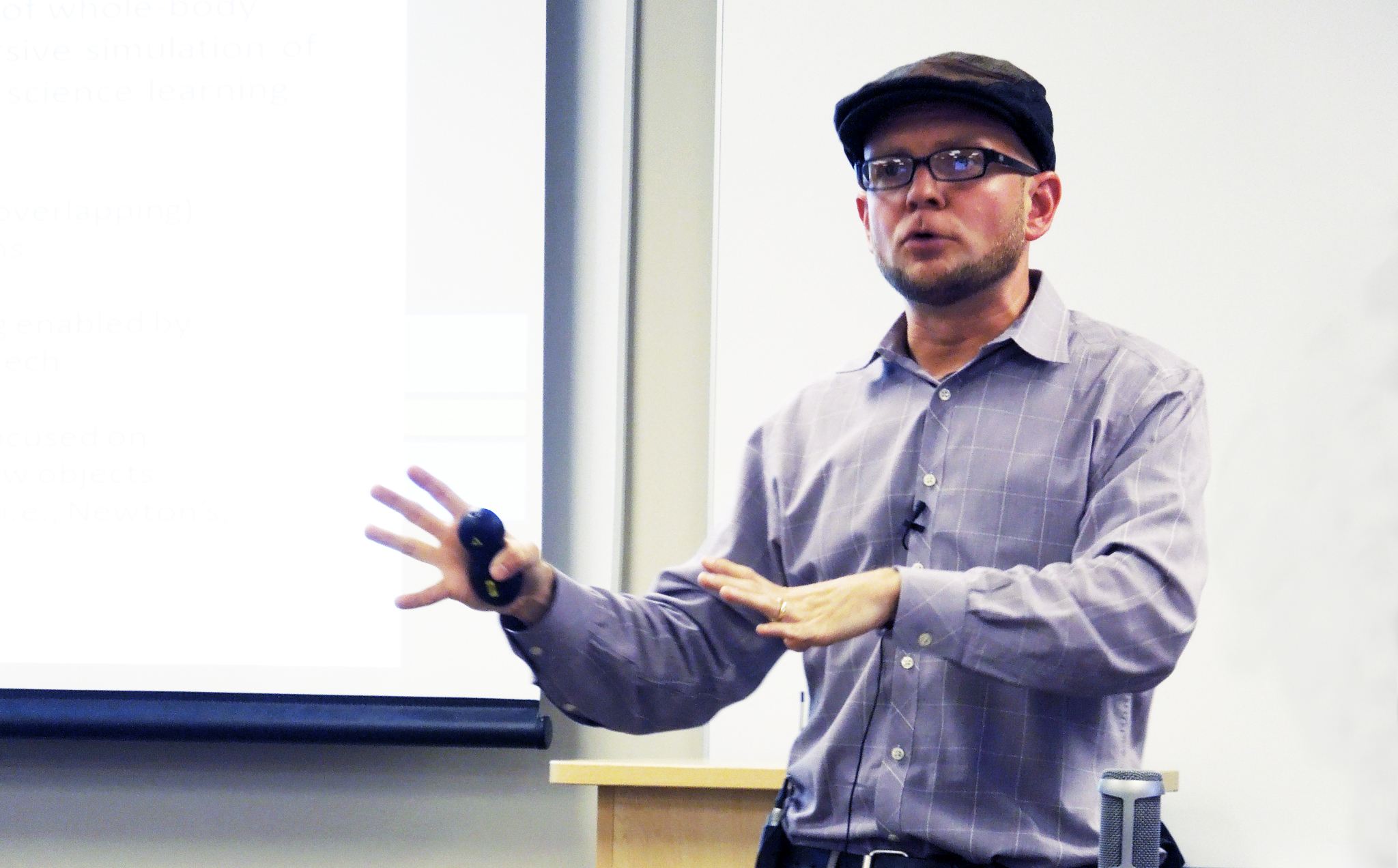COVID-19 Increases the Importance of Learning Technologies
by Tom Hanlon / Mar 5, 2021

The TIER-ED community is developing applications of new technologies that enhance education and make it more equitable and accessible—even during a pandemic.
COVID-19 has significantly impacted education at all levels since it was declared a pandemic in March 2020 by the World Health Organization. School closings and the scramble to go to remote learning, and later to hybrid formats, are just a few of the repercussions.
The pandemic has had a notable impact on TIER-ED as well.
“When COVID happened, suddenly a lot of attention was being placed on learning technologies,” says Robb Lindgren, director of TIER-ED (Technology Innovation in Educational Research and Design). “TIER-ED now plays an even more important role in the research and design landscape, given this crisis. We know now more than ever how important it is to have effective and equitable access to the most impactful and powerful learning technologies available.”
TIER-ED is an initiative begun in 2017 by the University of Illinois at Urbana-Champaign to design and develop applications of new technologies to enhance education and learning across the lifespan. The TIER-ED community is comprised of faculty and students across campus with expertise in building and assessing technologies that support learning.
New Priorities in Research
Lindgren, an associate professor in Curriculum & Instruction at the College of Education, where TIER-ED is based, says that COVID-19 caused TIER-ED to rethink its priorities for new research.
“The timing was actually pretty good in the sense that COVID happened shortly before our newest round of pilot projects,” he says. “The projects we most recently funded were selected knowing the pandemic was in place and would be with us for some time.”
Those projects include two that use emerging technologies to address the learning needs of children with autism and their families, and one using digital agents to communicate with adults about their healthcare decisions.
“These are especially important populations to focus on now that the pandemic has taken hold and made it challenging for these groups to access effective educational resources,” he says.
Learning Technologies Need to Be Extended
Most everyone knows that schools put Zoom and similar technologies to great use after the pandemic struck. “There’s certainly a role for these off-the-shelf solutions, but we in TIER-ED also know that we can do better than simply putting a traditional classroom on Zoom or using Google Classroom or other freely-available software,” Lindgren says.
Some areas in education have been harder hit by the pandemic than others.
“One group of learners for which education has gotten particularly more challenging is children with special needs,” Lindgren explains. “For students with disabilities, for students who are at risk for dropping out of schools, their struggles have gotten even more challenging. There is a role for technology to play in addressing the needs of those students, but it certainly isn’t simply putting all their classes online, because those students will disproportionally be left out.”
Need to Reassess Priorities
The solution, Lindgren says, lies in reassessing and reordering priorities and continuing to do what TIER-ED is doing, which is bringing the brightest minds together to solve the most critical problems.
The pandemic has served to focus more attention, campus-wide, on TIER-ED and its mission to develop equitable and accessible solutions to longstanding challenges in education. “I’m having Computer Science professors talk to me about what kinds of new things might be created, because they have kids at home who are having a hard time with online education,” Lindgren says. “That’s obviously not a good thing that they are having those challenges, but it’s bringing TIER-ED more people who are on board with the idea that this is something that needs to be addressed.”
The pandemic has affected TIER-ED in another way. “We’ve seen a new spike in energy,” Lindgren says. “We’ve of course always believed in our mission, but we believe it even more so, because it is directly relevant to a national crisis that we are experiencing.”
Lindgren hopes that in one way, COVID-19’s impact on education will be long-lasting. “It would be a real lost opportunity if we simply went back to the same modes of using technology in education that we had in place before the pandemic,” he says. “My hope is that rather than going back to the status quo, we use this as an opportunity to reflect and evaluate what were the things that worked well during this pandemic, what didn’t work well, and what needs to change as a result of those observations. We need to reassess our priorities.”